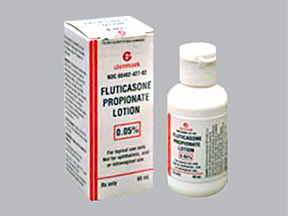
Cutivate Coupons & Savings Card – Discount Prices from $147.88
Brand for: Fluticasone
My prescription
Edit
120ML of 0.05%, Fluticasone (1 Bottle)
Select pharmacy

CVS
$186.52
COUPON PRICE
Albertsons
$147.88
COUPON PRICE
Walgreens
$201.55
COUPON PRICE
Walmart
$466.56
COUPON PRICECutivate savings card
Show this card to your pharmacist
Albertsons
$147.88
BIN
ID
PCN
GRP
019876
LH98F387F6
CHIPPO
LHX
Powered by
Related topical corticosteroids prescriptions
More prescriptions for skin allergy
Related topical corticosteroids prescriptions
More prescriptions for skin allergy
Cutivate (Fluticasone) dosage forms
Dosage Quantity Price from Per unit 120ML of 0.05% 1 Bottle $147.88 $147.88 120ML of 0.05% 2 Bottles $288.26 $144.13 120ML of 0.05% 3 Bottles $428.65 $142.88
| Dosage | Quantity | Price from | Per unit |
|---|---|---|---|
| 120ML of 0.05% | 1 Bottle | $147.88 | $147.88 |
| 120ML of 0.05% | 2 Bottles | $288.26 | $144.13 |
| 120ML of 0.05% | 3 Bottles | $428.65 | $142.88 |
What is cutivate cream used for?
Cutivate cream is used to treat inflammation and itching caused by skin conditions such as eczema, dermatitis, and psoriasis. It contains fluticasone propionate, a corticosteroid that helps reduce swelling, redness, and irritation.
Is Cutivate a strong steroid?
Cutivate, which contains the active ingredient fluticasone propionate, is considered a medium-potency topical corticosteroid. It is used to treat inflammatory skin conditions and is not classified as a strong steroid.
Is cutivate cream still available?
Yes, Cutivate cream is still available. It is a topical corticosteroid used to treat various skin conditions. However, availability may vary by location and pharmacy, so it is advisable to check with local pharmacies or healthcare providers for specific availability.
What are the benefits of fluticasone cream?
Fluticasone cream is a topical corticosteroid used to reduce inflammation and relieve symptoms associated with various skin conditions. The benefits include reducing redness, swelling, itching, and discomfort in conditions such as eczema, psoriasis, and dermatitis. It helps improve the appearance and feel of the skin by managing these symptoms effectively.
What is fluticasone cream good for?
Fluticasone cream is used to treat a variety of skin conditions, such as eczema, psoriasis, and allergic reactions. It helps to reduce inflammation, redness, and itching by acting as a corticosteroid.
